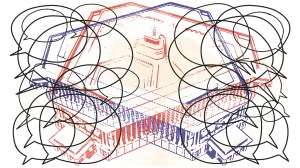Stay updated with the latest - Click here to follow us on Instagram
Collegium system can be changed: Ex-CJIs
Two former Chief Justices of India have said that a rethink or a modification in the judges' appointment process could be considered.
As voices opposing the present collegium-based system for appointing judges reach a higher pitch,two former Chief Justices of India have said that a rethink or a modification in the appointment process could be considered,if problems were being faced.
The collegium system involves a panel of judges headed by the CJI which selects the judges. It has been in place for over a decade and in recent years it has started drawing flak for being a closed system in which the judiciary selects its own judges.
Former CJI J S Verma,who created the collegium system with his 30-page judgement in 1993,said he had always said that some kind of modification can be made,if needed.
But he maintained that there is nothing wrong with the system “if properly worked,” as it was created to replace nepotism and arbitrariness in the system in which judges were appointed by the Executive.
“It all depends on the people who work it (collegium system)…they can spoil even the best of systems,” said ex-CJI J S Verma.
He said the collegium system was applauded when it was introduced and it worked well for years. “It is only now that problems are being faced… (in that case) some kind of modifications can be made,” he said.
While ex-CJI V N Khare backed exploring the possibility of involving the Executive in judicial postings,ex-CJI A M Ahmadi favoured having a system which is “workable,” including a possible reversion to the pre-collegium mechanism as there have been concerns in some quarters over the effectiveness of the existing system.
“One possible modification in the existing collegium system that can be considered is that of involving one or two persons nominated by the President or the Prime Minister in the selection process,along with the CJI and four senior-most judges (who are part of the collegium),” said Khare.
In an apparent reference to the recent controversy over the differences between the Prime Minister and the CJI over appointment of three HC judges as SC judges,he said having a representative of the Executive would help place the viewpoint of the former before the collegium.
It may also help coordinate in situations where the Prime Minister is on a foreign visit so that things could be firmed up when he returns,he indicated.
“Also,the Supreme Court does not have an agency for inquiry (conducted before a candidate is appointed as a judge). The IB or the CBI are under the Executive so… (there seems to be a possibility) of involving its representatives,” the former CJI said.
Ahmadi had opposed the creation of the collegium system by writing a dissenting judgement in which he said it was like rewriting the Constitution.
He pointed to concerns in certain sections and media that the existing collegium system has not worked itself. “How the CJI manages the system is important,” he said.
“When we talk about a rethink on a system,it is important to know which system will replace it and will be workable…otherwise we should go back (to the pre-1993 arrangement),” former CJI Ahmadi said.
This limitation of the collegium regarding inquiring into the antecedents of a judicial candidate,as highlighted by Khare,has even been highlighted by the Law Commission.
According to Law Minister H R Bhardwaj,who is studying the Commission’s proposal recommending modifying the present system,the collegium system has “failed and the CJI should have primacy in such matters”.
Khare’s views on a role for the Executive in judicial appointments were also reflected in a recent report of the parliamentary standing committee on Law and Justice.
“The Committee has already addressed the issue of appointment,accountability and transparency in appointment of judges of Supreme Court and High Courts…and impressed upon the Government to take necessary steps in restoring the pre-1993 arrangement by involving the Executive,” said the committee headed by Rajya Sabha member E M S Natchiappan.
The Law Commission has also recommended to the Centre to pass a law to restore the primacy of CJI and the power of the Executive in judicial appointments.
The Law Commission had,suo motu,studied the law on the subject,various recommendations of Parliament Standing Committees and the law of foreign jurisdiction like the US,Australia,Canada and Kenya where the executive is the sole authority to appoint the judges or the executive appoints them in consultation with the Chief Justice of the country.
Commission chairman Justice A R Lakshmanan observed that the judges constituting the collegium a panel headed by CJI are not conversant with the names and antecedents of the candidates for judicial posts and more often than not,appointments suffer due to lack of adequate information. To counter this shortcoming,the Commission recommended two alternatives to the government. One,seek reconsideration of Supreme Court’s three judgements related to judicial appointment before the apex court.
Two,pass a law for restoring the primacy of the CJI and the power of the executive to make the appointments,Lakshmanan said.
Importantly,the Commission has no statutory backing and 57 if its over 215 reports given to the government are still to be implemented.
The Law Commission also touched upon issues related to the lack of information with the Collegium on the candidates which it considers for appointment.
The Commission’s report said “…In every HC,the Chief Justice is from outside the state as per the policy of the government. The senior-most judges who form the collegium are also from outside the state.
“The resultant position is that the judges constituting the collegium are not conversant with the names and antecedents of the candidates. More often than not,appointments suffer from lack of adequate information,” it said.







